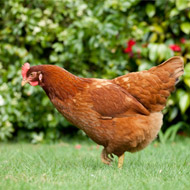Second avian flu case in Lancashire

The prevention zone requires poultry keepers to follow certain measures to reduce the risk of infection from wild birds.
Avian influenza H5N8 has been confirmed in a second backyard flock near Thornton, Lancashire, just a few days after an outbreak in a flock of 30 chickens.
The second outbreak was detected in a flock of nine chickens and ducks on 6 May. A 3km protection zone and a 10km surveillance zone have been put in place around the affected premises to limit the risk of disease spreading.
Some of the birds in the flock had died and the remainder were humanely culled. A full investigation is underway to identify the source of the infection.
Defra confirmed another case of H5N8 in a backyard flock of 30 chickens, also in Thornton, on 4 May.
At the end of last month Defra announced the avian flu prevention zone and ban on poultry gatherings would be relaxed from 15 May if there were no more H5N8 findings.
The prevention zone requires poultry keepers to follow certain measures to reduce the risk of infection from wild birds. It was introduced following outbreaks of H5N8 in poultry and wild birds in several countries across Europe. Since December 2016 there have also been a number of outbreaks across the UK.



 The Federation of Independent Veterinary Practices (FIVP) has announced a third season of its podcast, Practice Matters.
The Federation of Independent Veterinary Practices (FIVP) has announced a third season of its podcast, Practice Matters.